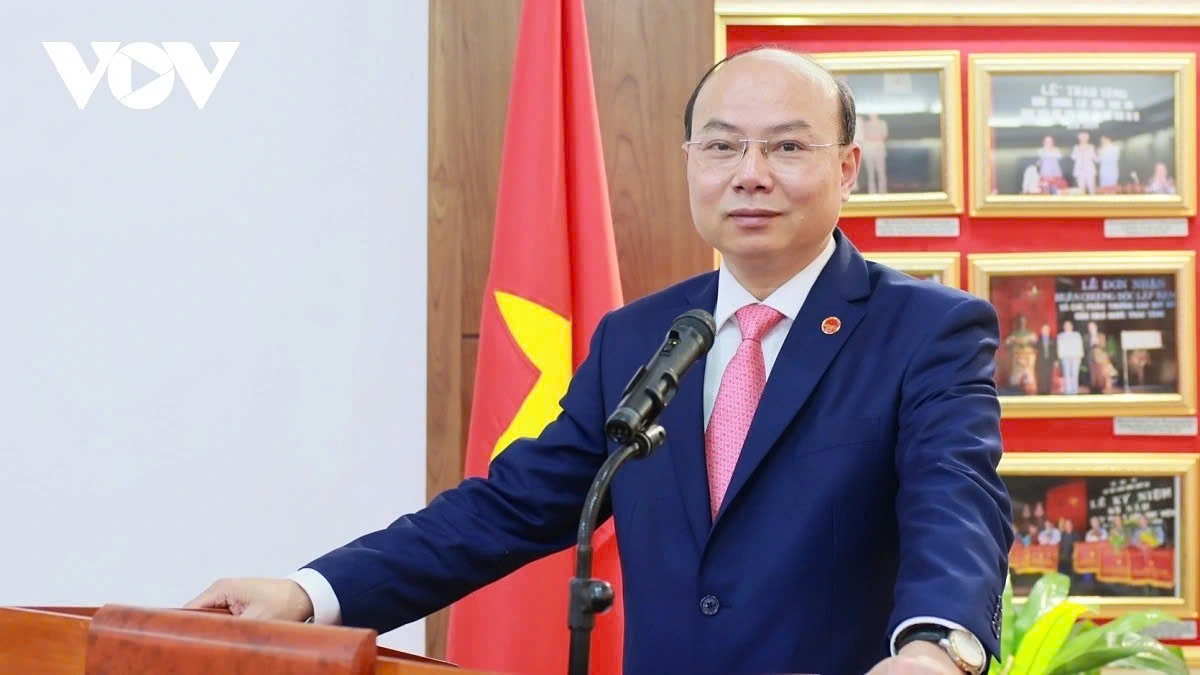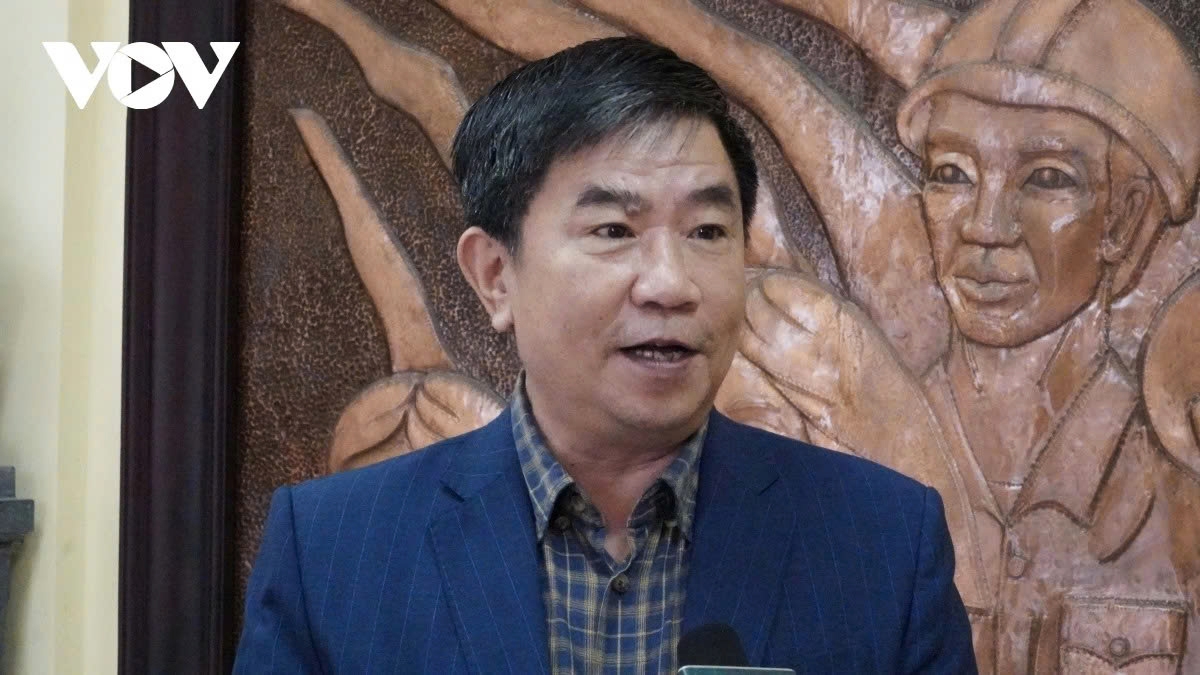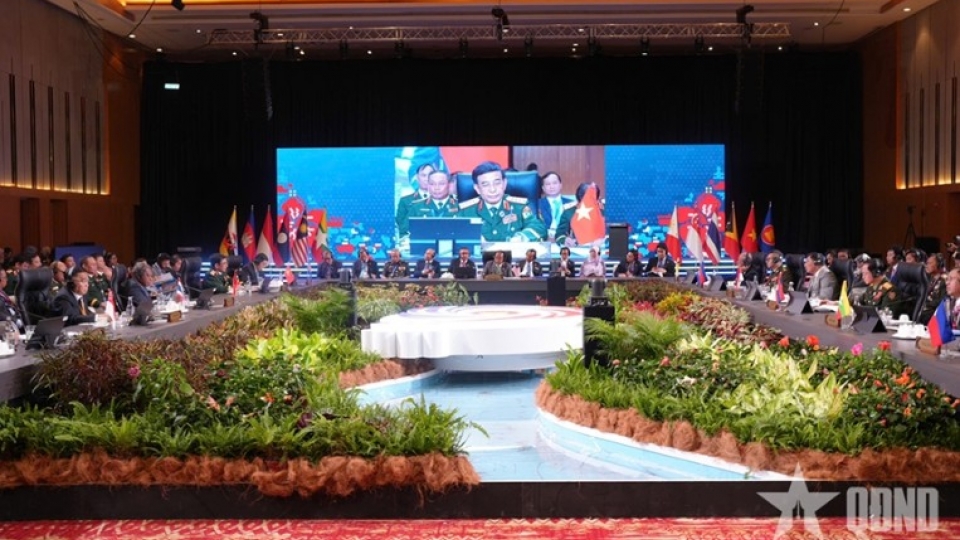Defence and security - a driving force for development in Party’s new strategic vision
VOV.VN - In the draft Political Report for the coming 14th National Party Congress, experts believe that the Communist Party of Vietnam has made a significant breakthrough in its strategic thinking on national defence and security.
Whereas defence and security were once seen mainly as tasks of protecting the nation, they are now regarded as a direct driving force for national development amid a world that is increasingly multilayered, fragmented, and divided.
Strategic security thinking in a multilayered world

Associate Professor Dr. Hoang Van Nghia, Director of the Department of International Cooperation (Ho Chi Minh National Academy of Politics), emphasised that the Party’s inclusion of three new concepts - “multilayered, fragmented, and strongly divided” - in the draft documents is a timely and essential update. According to him, today’s world no longer operates under a fixed order but is shifting toward multipolarity and multiple centres of power, with flexible alliances and deeply intertwined interests.
“The contemporary world is moving toward a multipolar and multi-centred order. Layers of hierarchy are clearly visible even among the leading powers, such as the P5, and this pattern extends to developing nations. This stratification is a defining characteristic of today’s multi-layered international landscape,” said the scholar.
In such a context, he said, both traditional and non-traditional security challenges - from cybersecurity and transnational crime to climate crises - demand new strategic approaches to safeguarding the nation.
“Even pressing issues such as cybersecurity, high-tech crime, and the climate crisis reveal that the old order is beginning to fracture,” stated Dr. Nghia.
In addition, the notion of sharper divisions reflects the emergence of non-traditional alliances and partnerships that are no longer confined by geography or ideology.
“A nation can now take part in multiple cross-regional initiatives, such as the United Kingdom’s participation in the Asia-Pacific partnership. Today’s connections are grounded in national interests while aiming to tackle the shared challenges of humanity,” noted the academic.
Vietnam’s posture – a symbol of strength and resilience
Recognising the current global order accurately allows Vietnam to proactively adapt its national security strategy.
Dr. Nghia praised the draft Political Report’s inclusion of the phrase “the country’s posture, potential, position, and international prestige have been elevated.” He explained that “Vietnam’s posture” represents the comprehensive strength of the nation that encompasses its capacity, status, credibility, and resilience. This concept embodies not only the achievements of nearly four decades of reform but also reflects a confident and proactive Vietnam ready to help shape the new international order.
“In the new configuration of the global order, Vietnam is no longer merely a participant but has become a creator of the new rules of the game, affirming its stature, credibility, and the steadfast spirit of an independent and self-reliant nation,” he said.
To realise this vision, he said, Vietnam must maintain its confidence, strengthen its internal capabilities, and uphold national self-reliance.
“We need faith and self-assurance to navigate the turbulent waves of a vast and challenging world. This is the spirit of Vietnam today, it is independent, confident, and shaping its own future.”
From “protection” to “driving force for development”

From another perspective, Lieutenant General, Associate Professor Dr. Tran Vi Dan, former Director of the Department of Science, Strategy, and History under the Ministry of Public Security, noted that the draft documents of the 14th Congress mark a clear evolution in the Party’s thinking on defence and security. He asserted that these fields should not merely focus on protection but must be viewed as a source of internal strength and a direct engine of socio-economic development.
“Traditionally, we have viewed national defence and security as objectives aimed at protecting the country alongside socio-economic development. Today, however, we need to see defence and security as a direct driver of development, rather than merely a task of protection,” Dr. Dan emphasised.
He cited the directive of Party General Secretary To Lam, saying defence and security work must not only ensure the firm protection of the Fatherland but also become a direct driving force promoting the country’s development. This directive, he said, reflects a strategic mindset that underscores the organic relationship between defence, security, and national growth.
To realise this new vision, Dr. Dan proposed building a “comprehensive national defence posture” that integrates the people’s defence posture, the people’s security posture, and the “people’s hearts and minds” posture. This would form a solid foundation for proactive and early responses to emerging threats, mobilising the strength of the entire political system and society.
According to him, a “comprehensive national defence posture” will enable the country to act proactively, address distant threats early and effectively, and mobilise the full combined strength of the political system and the people.
From these analyses, it is clear that national defence and security are being placed at the forefront of Vietnam’s development strategy. They are not merely shields that protect the country, but serve as a strategic pillar and a driving force of sustainable development.
In an era of rapid and complex global change, Vietnam must continue to innovate its strategic thinking on security, defense, and development, not only to firmly protect the nation but also to proactively shape its future and enhance its standing in the new global order.





